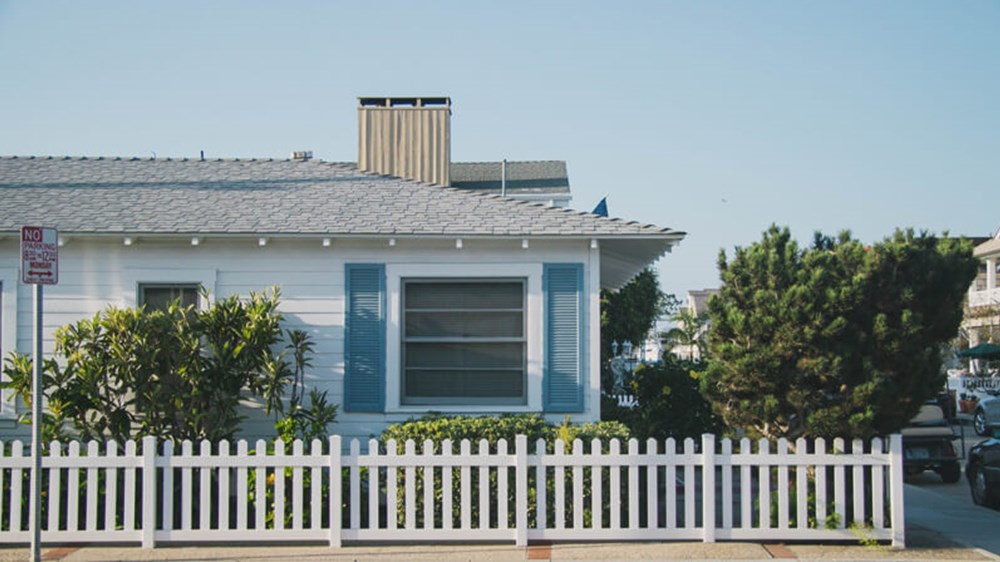Have you ever thought about buying and “flipping” a house in order to make a profit?
It has a certain appeal to most, with popular TV shows like Homes Under the Hammer showcasing a wide variety of renovations, but how easy is it to do? How do people do it and are you guaranteed a profit? We’ll take a look at all of that, to help give you a better idea of whether it’s the right investment type for you.
How do people make money with property?
There are three main ways that you can make money with property: you could renovate or build a property, buy and rent it out or indirectly invest in property.
With the first two of these options, you will need to be prepared to put in some real work and/or more money in order to create a profit. Knowing a trade or having close relationships with people in construction could also be very beneficial in bringing your development costs down.
It’s important to note that there’s no such thing as a quick profit in property renovation and construction. You have to think about planning approval, finding suppliers and choosing contractors to work with. Build It provide a self-build planner with a guideline of 30 weeks to build a house from the ground up, once all permissions are obtained.
Renovating property
Firstly, let’s look at the renovation option. As with stocks and shares, your aim is to buy low and sell high, but this is always easier said than done, and there’s a lot to consider – the main one being the purchase price.
The cheaper you can purchase property for, the more potential it has to turn a profit. But this often means that you’ll need to do a lot of work and spend quite a bit of money to be able to turn a profit.
For example, say you purchased a house for £200,000 and spent £40,000 in renovations and updates before selling for £300,000. Your profit margin on this property would be £60,000, but that’s before including costs and fees associated with any mortgage or sale of the property.
In order for this option to be viable, you would likely need to have a large chunk of money to get funding. And if you had the full £240,000 available to you, then you could have invested it in a General Investment Account and may have received a similar profit in just 8 years1 without the hassle of buying, renovating and then selling a property.
Buy to rent
Another viable alternative would be to buy a property and rent it out at an amount that covers the mortgage and generates profit. However, rental income is now taxed the same as a regular income and, as of April 2017, only part of the mortgage interest can be expensed.
Any rental income you make would be added to other income you earn and could affect your tax bracket. For example, if you earn £45,000 in your job and make £10,000 from rental properties a year, then it’ll put you in the threshold for higher-rate tax in 2025/26. This means that for the £5,000 above £50,000 you’ll be paying 40% tax.
You will also need to factor in the potential of the property being empty in the case of not being able to find a tenant or a transition period between tenants.
This may mean that you’ll have to pay the mortgage out of your own pocket, so you’ll need to make sure that you have money available for this.
Indirect property investments
This type of property investment is a bit different to the other two, in that you don’t actually buy or manage the property yourself. Essentially, it offers some of the benefits of investing in property without having the added hassle of construction work or being a landlord.
So, how does it work? Possibly the easiest and most affordable way to invest in property is through a property fund or by buying shares in Real Estate Investment Trusts (REITs).
But, what’s the difference between a property fund and a REIT?
A property fund will hold the majority of its assets in physical property, either commercial property like shopping centres and office blocks, or residential property like the house you live in.
Alternatively, a REIT is bought and sold on a stock exchange exactly like a share. When you’re purchasing a REIT what you’re buying are shares in either a group or single company that develops and manages commercial and residential property.
Because property funds hold physical assets, the money isn’t as mobile as stocks and shares, which means that suspension withdrawals may be put in place to allow time for the sale of investments – which, in this case, is selling actual property.
As REITs allow you to buy shares in the property management companies, and not owning a share of actual property, you can buy and sell your investments quicker and easier than physical property funds. The downside of REITs is that their value can go up and down with the stock market, whereas property funds, although not as readily accessible, are less volatile.
This can be a much more affordable way of investing in property, letting you invest as much or as little as you want, rather than requiring a large lump sum to get started. But of course, you do keep your hands clean, so it may not be the right solution for everyone.
The risk of investing in a single sector
Each of the methods of making money from property listed above all come with a risk, and this risk is maximised by limiting the focus to a single sector – and even in some cases a single property.
By diversifying your investments, you aren’t putting all your eggs in one basket, and instead, put your money in a number of different sectors in places all around the world. This means that if one sector has a particularly bad time, or fails altogether, you’re less likely to lose all your money.
Take renovating a property, for example. If you put all your money into buying one building, spend tens of thousands doing it up, but then nobody buys or rents it, then you’re going to be in a bit of financial trouble.
You could reduce this risk by purchasing several houses, but then what happens if the housing market crashes and prices plummet?
By diversifying your portfolio and investing in several different sectors all around the world, you can help reduce the amount of risk you’re taking and potentially minimise your losses by balancing out poor performing sectors with good ones.
That’s how we invest at Wealthify. We deal with brick and mortar through REITs, but we also add things like shares, bonds and commodities - like precious metals, energy and agriculture - to your Plan, or Stocks and Shares ISA.
And with our fully managed service, it's a much easier and simpler way to invest than trying to make money through buying and selling property.
1: £339,378 is the projected value for a Confident Plan (Medium Risk Plan) based on an initial investment of £240,000 being held for 8 years. This is only a forecast and is not a reliable indicator of future performance. If markets perform worse, your return could be £245,937. If markets perform better, your return could be £452,466. Values correct as of 18/07/2023.
Please remember that the value of your investments can go down as well as up, and you could get back less than you invested.



